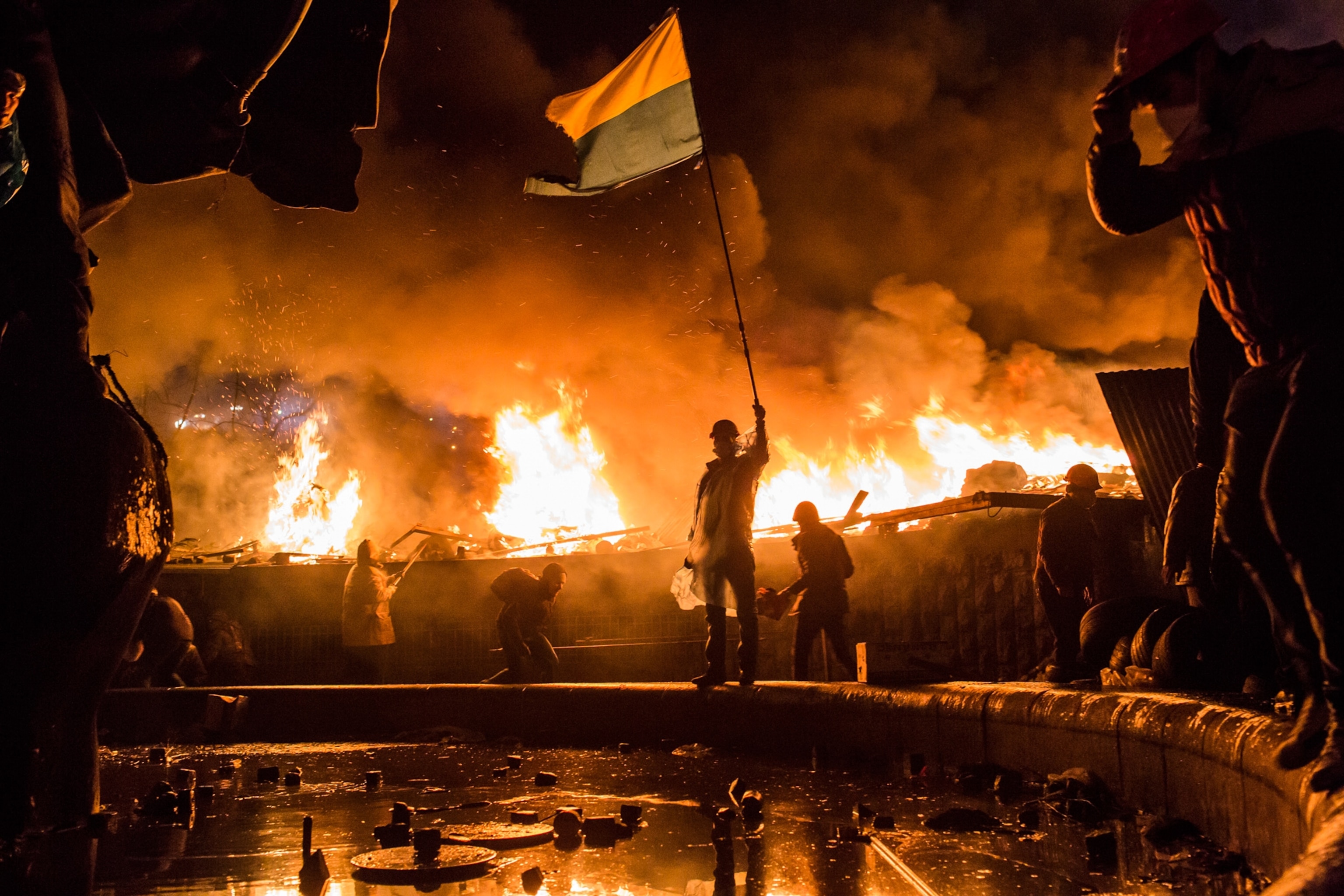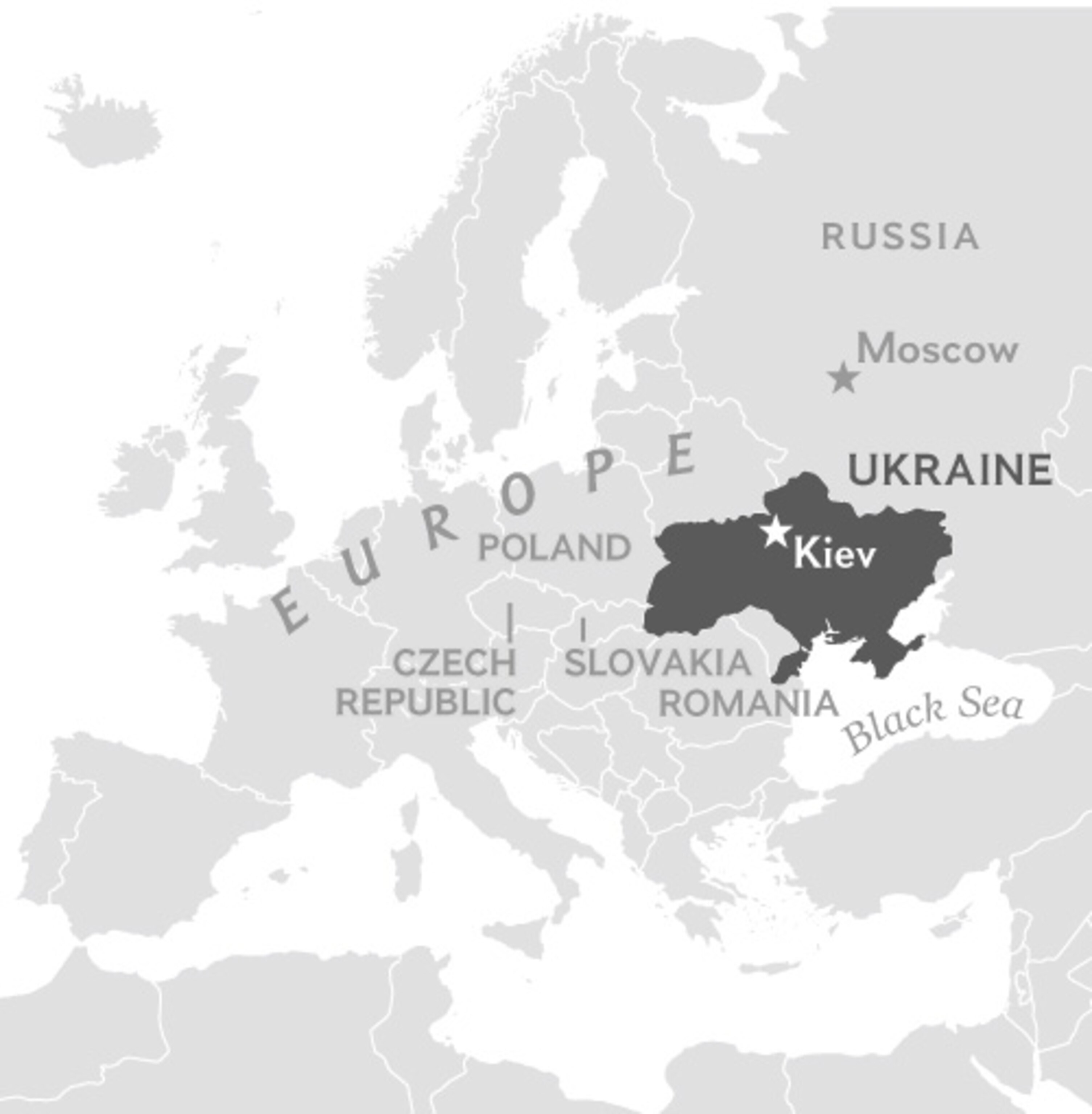
Q&A: Ukraine's Dangerous Turn Has Roots in History
Serhii Plokii, director of the Ukrainian Research Institute at Harvard University, gives a historical perspective to the country's crisis.
The political crisis in Ukraine intensified Thursday into armed conflict, with bodies scattered throughout Kiev's Independence Square, known as the Maidan, and the police now authorized to use live ammunition.
To get a historical perspective on the events, Eve Conant spoke to Serhii Plokii, a history professor and director of the Ukrainian Research Institute at Harvard University. He reflects on Ukraine's rebellious past, why Moscow appears intent on wielding influence over the region, and the historical roots of what protesters fear will happen if their efforts fail. (See: "Photos: Ukraine's Ring of Fire.")

Historically, have you ever seen protests this violent in Ukraine?
No. In looking at the short history of Ukraine since its independence in 1991, this is the first time. Historically the Ukrainian elite has been able to find a negotiated compromise to problems. In 1994 there was a major economic and political crisis, and the president of Ukraine at the time—Leonid Kravchuk—allowed for early elections and the peaceful transfer of power.
The next crisis was 2004—the Orange Revolution. The level of violence was not like today. There were peaceful demonstrations that resulted in another round of elections and changes to the constitution. What's happening now in Ukraine goes against the grain of the past 20 years.
What about hundreds of years back, deeper into Ukraine's history?
Violence is not new for Ukraine. Before, it was in the context of the [1917 Bolshevik] Revolution and World War II. Joseph Stalin responded with violence toward the opposition, but in a different kind of way. What we had back then were the great purges, when people were arrested in the middle of the night. There was also the [1932-33] famine, when people starved to death.
Today the protesters are also afraid of purges; they fear that the end of the Maidan will unleash on them the same kind of terror as Stalin's purges. There have already been arrests, imprisonments, kidnappings, and killings—there are snipers using live ammunition—so in some senses it is worse than 1937, the height of Stalin's purges.
I understand that Russians who protested against Vladimir Putin in Moscow two years ago are still facing retaliation. Amnesty International has called on the Putin administration to drop charges against those who took part in the 2012 Bolotnaya Square protests.
Yes. There is no proof one way or the other, but many fear that what is happening in Ukraine will be the realization of the Russian scenario. It is very much on people's minds in Kiev. If the Maidan is dispersed, they are afraid the next steps will be arrests of people who took part in the protests, arrests of those who wrote blogs or appeared on radio interviews.
Both sides have claimed that agents provocateurs are responsible for some of the violence on the square.
There were accusations like that during the Orange Revolution, but again that never turned violent. There are accusations back and forth. There are credible reports that secret services were taking part in the violent dispersal of protesters.
Ukraine last experienced civil war in the years following the 1917 Russian Revolution, when the Bolsheviks overthrew the tsars. There is concern now that this violence could again escalate to civil war.
Everything is possible. But I don't see that happening at this point. For a civil war you need a more even split in society and a more equal level of mobilization. What is mobilized now is a portion of the populace against the government, the police and thugs hired by the government. It's not one social group against the other.
Can you talk a little bit about the "thugs"—or "titushki"—as this has been a much-discussed issue in Kiev.
The titushki are the groups that have been attacking journalists. The historical background for this is more from the past 20 years or so, when politicians have used these kinds of people to intimidate opponents during elections.
Why is Ukraine so important for Moscow?
I've actually just published my book The Last Empire: The Final Days of the Soviet Union, which talks about the role of Ukraine in the last few months of the Soviet Union. First of all, Ukraine was crucial in 1922 to the formation of the Soviet Union—the arrangements of all the other republics were shaped by it. In 1991 it was not just Boris Yeltsin and Mikhail Gorbachev and the coup attempt, but it was also the Ukrainian referendum of December 1991 that spelled the end of the Soviet Union. Ninety percent of Ukrainians voted for independence. It was the final nail in the coffin of the Soviet state.
Now Ukraine is the key country for anyone in the Kremlin who is thinking of reintegration of the former Soviet space. Given its role in history—in how the Soviet Union was formed and how it fell apart—Ukraine is the key element in this structure, even if it's a virtual structure now, not a real one. (See: "How History, Geography Help Explain Ukraine's Political Crisis.")
Is there anything in the coverage of events that you as a historian see as incorrect or a misunderstanding?
The basic misunderstanding is that there is a structural split between those who speak Russian and those who speak Ukrainian. Both languages are in fact everywhere. Protesters are united, both Russian-speaking and Ukrainian-speaking [people] together. It's not as important an issue as people tend to believe.
Ukraine hasn't seen this level of violence in anti-government protests, yet it has a long history of rebellion, doesn't it?
There were a number of attempts during the [Bolshevik] Revolution to take over Ukraine. The victory was achieved at great cost, and even then it was only central and eastern Ukraine. The western part of Ukraine went to Poland, Romania, and Czechoslovakia. It was only after World War II that most areas were fully integrated. It took the Bolsheviks over 30 years to get all of Ukraine. The nationalist underground armed resistance was fighting Soviet rule well into the early 1950s. Let's hope they find some compromise now. This is heartbreaking.